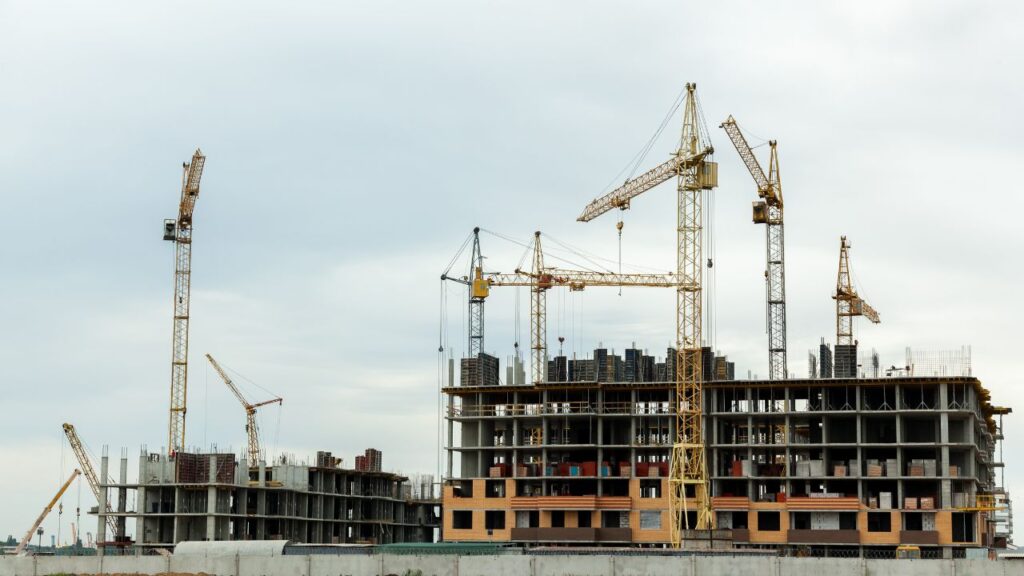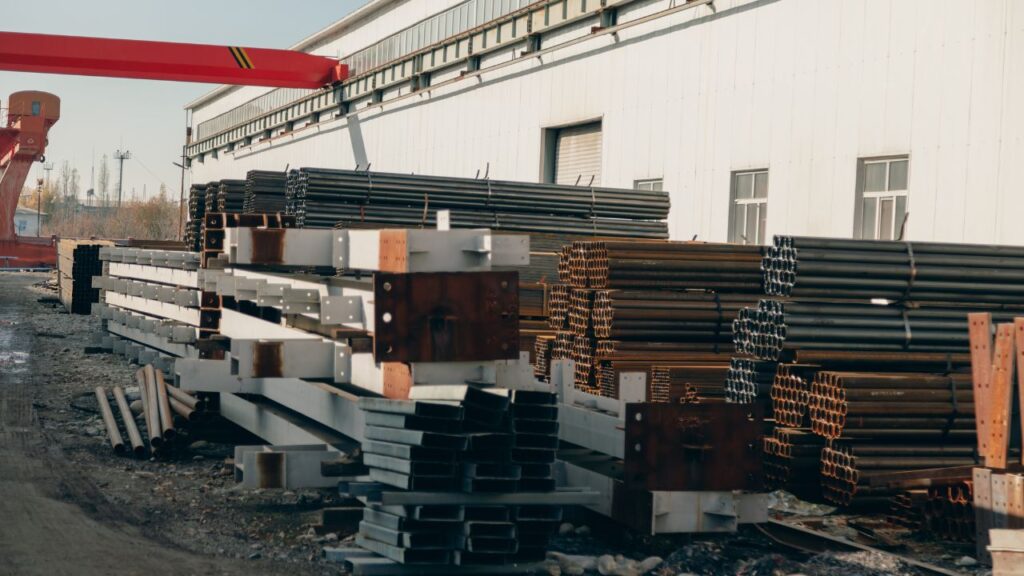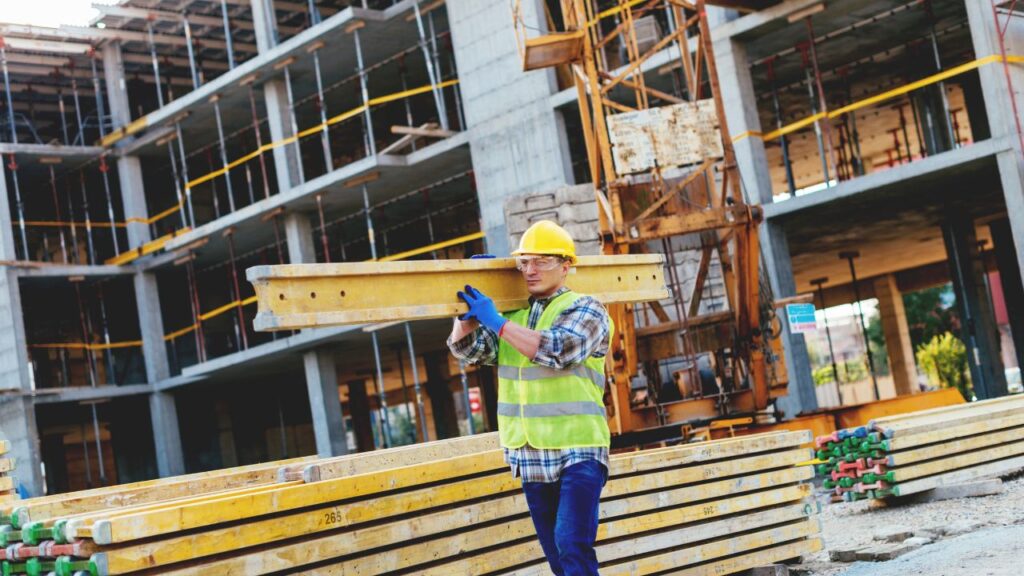Boost Your Construction Bids – Request a Precision Estimate!
- Accurancy
- Efficiency
- Transparency
- Customization
- Time Saving
- Professionalism
- Cost Control

Embarking on a home construction project involves a myriad of considerations, and among the most pivotal is the accurate estimation of building materials. This process serves as the cornerstone for effective project planning, enabling stakeholders such as homeowners, builders, and contractors to navigate the complexities of budgeting, procurement, and overall project management with confidence. A meticulously crafted material estimate not only provides financial clarity but also ensures that the right quantities of materials are available at each phase of construction, minimizing disruptions and optimizing efficiency. In this comprehensive guide, we will delve into the intricacies of estimating building materials for home construction, offering a step-by-step walkthrough that encompasses everything from comprehending the project scope to calculating precise quantities.
Before embarking on the intricate task of estimating building materials, a foundational step is to gain a comprehensive understanding of the project’s scope. This involves a meticulous review of architectural plans, structural drawings, and any other pertinent documents that articulate the nuances of the construction endeavor. By discerning key components such as the foundation, walls, roofing, flooring, and finishing details, stakeholders can establish a solid foundation for the subsequent material estimation process.

This initial step sets the tone for a well-informed and accurate estimation, aligning the projected material needs with the broader goals and specifications of the construction project.
With a clarified project scope in hand, the next pivotal step is the creation of a detailed material list. This involves a meticulous categorization of materials by type and their designated locations within the structure. From foundational elements like concrete and lumber to intricate details such as plumbing fixtures and finishing materials, a comprehensive material list serves as a roadmap for the estimation process. Breaking down the list into well-defined categories not only simplifies the estimation process but also ensures that no crucial aspect is overlooked. This systematic approach fosters a methodical and accurate approach to material planning, guiding stakeholders through the labyrinth of diverse materials required for the construction.

Make Informed Design Decisions Showcase Your Design Ideas
Get RenderingAt the core of any successful material estimation endeavor lies the accuracy of measurements. This involves a precise measurement of each structural component and living space, utilizing these measurements to calculate the necessary surface area, volume, or length, depending on the material in question. Standard units such as square feet, cubic yards, or linear feet become crucial tools in this phase. The meticulous measurement and calculation process lay the groundwork for precise material estimations, mitigating the risk of shortages or excesses that can disrupt the construction timeline and budget. It is an indispensable phase that forms the bedrock for the subsequent stages of material estimation.
Prudent material estimation extends beyond the realm of calculating exact quantities; it anticipates and accommodates for potential wastage and overages. Material wastage, occurring during cutting, fitting, and unforeseen errors, is a common aspect of construction. Incorporating a wastage factor of 5-10% into the calculations ensures that the actual material requirements are met, even in the face of unexpected challenges. Additionally, including overages in the estimates provides a safety net, allowing for extra materials in case of unforeseen changes or repairs during the construction phase. This forward-thinking approach is instrumental in fortifying the resilience of the construction plan against unforeseen contingencies.
Accurate estimation is inherently tied to a thorough understanding of current material prices in the local market. Prices can fluctuate based on location, supplier dynamics, and market conditions. Thorough research and obtaining quotes from multiple suppliers are essential steps in ensuring competitive pricing and material availability. Considering bulk discounts for larger orders becomes a strategic consideration, contributing to a more cost-effective material procurement strategy. This phase of the estimation process exemplifies the intersection of financial acumen and material knowledge, where informed decisions drive the overall success of the construction project.

In the digital age, the integration of technology into the material estimation process is not just advantageous but often essential. Numerous online tools and software applications are available to assist in accurate and efficient estimations. These tools leverage algorithms and databases to generate precise estimates quickly, reducing the margin of error and enhancing the overall efficiency of the material planning process. By embracing technology, stakeholders demonstrate a commitment to modernizing and optimizing the construction planning phase, resulting in a more streamlined and sophisticated approach to material estimation.

Material estimation is intrinsically linked with estimating labor costs, as both components contribute significantly to the overall project budget. Beyond the tangible materials, factoring in the labor required for material handling, installation, and any specialized skills is essential. Understanding the labor component provides a more comprehensive view of the budget, allowing stakeholders to allocate resources appropriately. This holistic approach ensures that both material and labor considerations are well-integrated into the overall construction plan, fostering a synergistic balance between the physical resources and the skilled workforce required for successful project execution.
Material estimation is a dynamic process that requires ongoing review and refinement as the project progresses. Changes in design, unforeseen circumstances, or modifications to the construction plan may necessitate adjustments to the material quantities. Regularly reviewing and refining the material estimate ensures that it remains aligned with the evolving needs of the project. This adaptive approach fosters flexibility, allowing stakeholders to respond effectively to changing circumstances and maintain the accuracy of the material estimates throughout the construction journey. It is a strategic and proactive measure that contributes to the overall resilience and success of the construction project.
Incorporating the insights of professionals such as architects, engineers, or experienced contractors is a strategic move during the estimation process. Their expertise brings valuable perspectives into potential challenges, specific material requirements, and industry best practices. Collaborating with professionals enhances the robustness of the material estimation, providing a holistic view that draws upon both theoretical and practical knowledge within the construction domain. By leveraging the collective wisdom of experienced professionals,

stakeholders benefit from a well-rounded understanding of the unique nuances associated with material selection and utilization in the context of the specific construction project.
Maintaining a detailed and organized record of the material estimates is a best practice that extends beyond the current construction project. This documentation, including assumptions, calculations, and any changes made during the construction process, serves as a valuable reference point for future endeavors. It not only facilitates a smoother estimation process for subsequent projects but also enables stakeholders to identify areas for improvement and optimization in the overall estimation workflow. The documentation becomes a repository of institutional knowledge, capturing the lessons learned and providing insights that contribute to continuous improvement in material estimation practices for future construction projects. It serves as a testament to the commitment to excellence and a proactive approach to refining and enhancing the art and science of material estimation in the dynamic landscape of construction.
Estimating building materials is a pivotal skill in successful home construction. From grasping the project scope to leveraging technology, each step contributes to effective project management and budgeting. Regular review, collaboration with professionals, and meticulous documentation enhance the reliability of estimates, ensuring a seamless and cost-efficient construction experience. The process is a dynamic journey, adapting to changes and guided by a commitment to continuous improvement. Ultimately, accurate material estimates transform construction into a harmonious symphony, where each element plays its role in crafting not just homes but the foundations of dreams and aspirations.
Accurate material estimation is crucial because it forms the foundation for effective project planning, budgeting, and overall management. It ensures that the right quantities of materials are available at each construction phase, minimizing disruptions and optimizing efficiency.
To account for unforeseen changes, it’s advisable to include a wastage factor (5-10%) and overages in your calculations. This provides a safety net for unexpected challenges or repairs, enhancing the resilience of your construction plan.
Yes, there are numerous online tools and software applications designed to streamline and enhance the accuracy of material estimation. These tools leverage technology, algorithms, and databases to generate precise estimates quickly.
Collaborating with professionals such as architects, engineers, or experienced contractors brings valuable insights into potential challenges, specific material requirements, and industry best practices. Their expertise enhances the overall robustness of the material estimation.
Material estimation is a dynamic process, and regular reviews are essential. Changes in design, unforeseen circumstances, or modifications to the construction plan may necessitate adjustments. Regularly refining the estimate ensures alignment with the evolving needs of the project.
Yes, maintaining detailed documentation, including assumptions, calculations, and changes made during the construction process, is a best practice. It serves as a valuable reference for future projects, facilitating a smoother estimation process and contributing to continuous improvement in practices.
Research current material prices in the local market, obtain quotes from multiple suppliers, and consider bulk discounts for larger orders. This approach ensures competitive pricing and material availability for your construction project.
Here I am going to share some steps to get your Build Underground Garage Estimating report.
You can send us your plan on info@estimatorflorida.com
Before starting your project, we send you a quote for your service. That quote will have detailed information about your project. Here you will get information about the size, difficulty, complexity and bid date when determining pricing.
Our team will takeoff and estimate your project. When we deliver you’ll receive a PDF and an Excel file of your estimate. We can also offer construction lead generation services for the jobs you’d like to pursue further.



561-530-2845
info@estimatorflorida.com
Address
5245 Wiles Rd Apt 3-102 St. Pete Beach, FL 33073 United States
561-530-2845
info@estimatorflorida.com
Address
5245 Wiles Rd Apt 3-102 St. Pete Beach, FL 33073 United States
All copyright © Reserved | Designed By V Marketing Media | Disclaimer